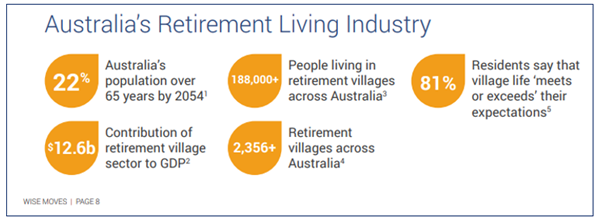Retirement villages and land lease communities front and centre for political leaders seeking the seniors vote It’s the Federal Election …
Our Village Management Professional Development program, presented by the DCM Institute, has now passed 560 participants who have signed on …
Older Australians are clearly responding positively to the undeniable and unique appeal that senior living communities are able to offer, …
The village sector has progressed and reshaped its offering nearly every decade. In 2022 and beyond, we will have a …
This week I came across a great resource for busy village managers – a Local Resource Guide produced by the team …
In another sign of the prosperity in retirement living, over the past three years Westpac has been receiving applications and …
From time-to-time village managers are faced with situations where a resident may come to them concerned about a reduced income …
Residents are living longer in their homes in villages due to the introduction and access to extended Home Care services …
Ian Yates, Chief Executive of the Council of the Ageing Australia, told the Leaders Summit in Sydney in March that …









